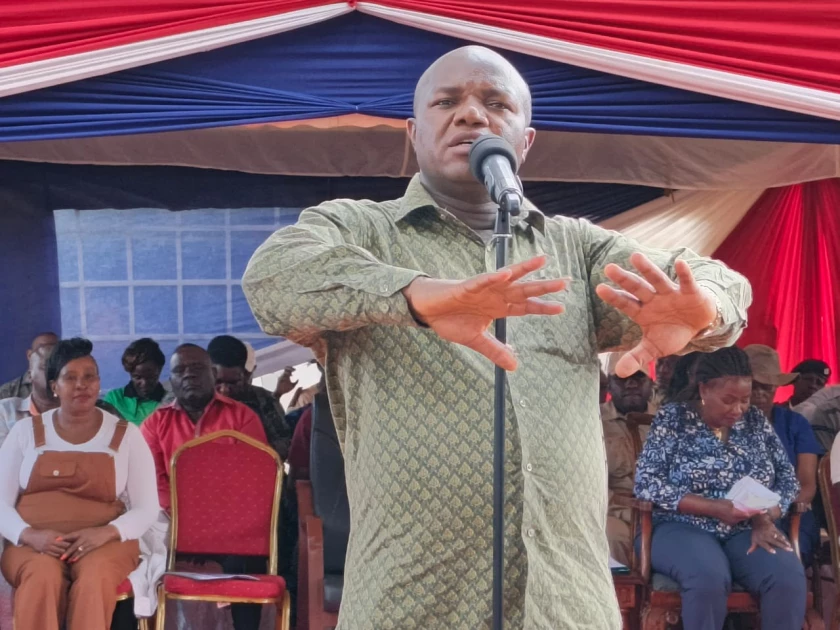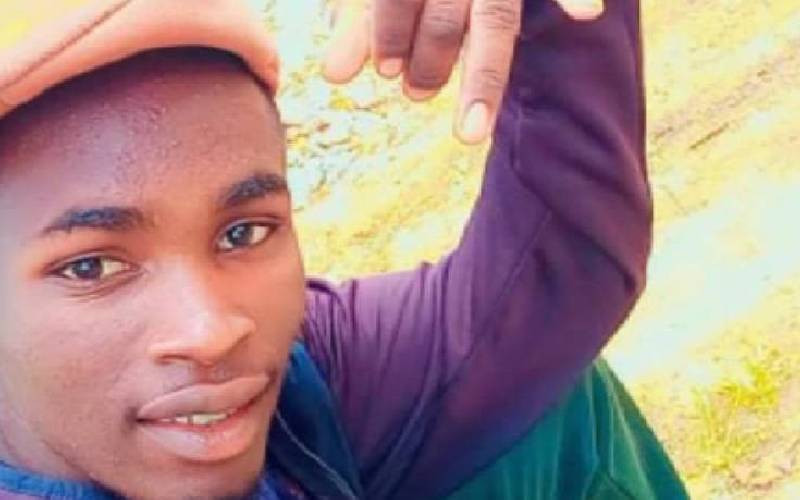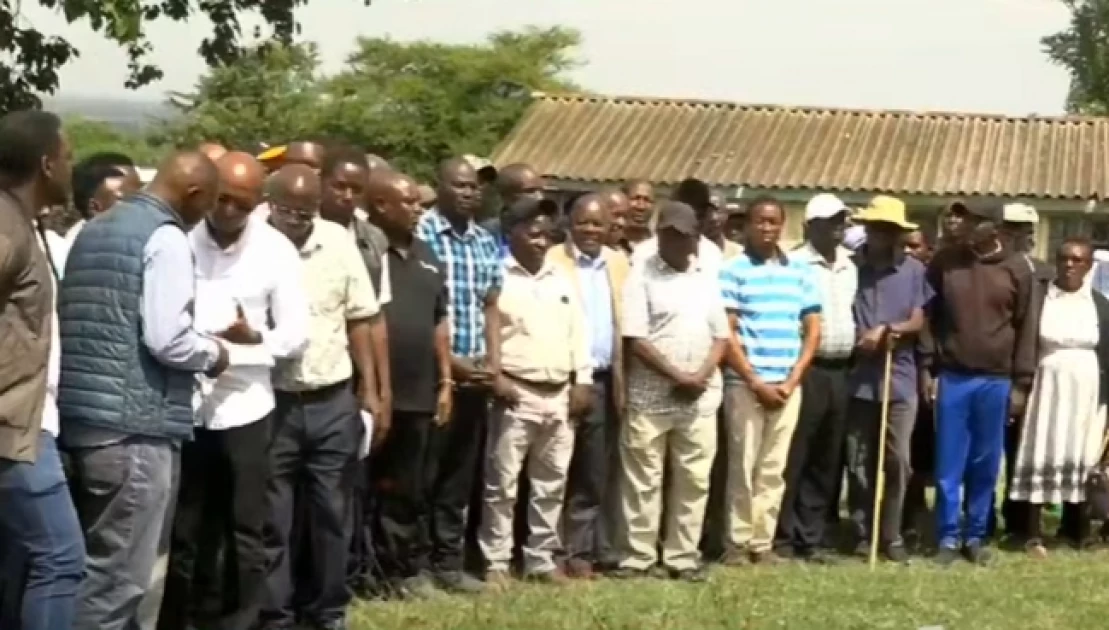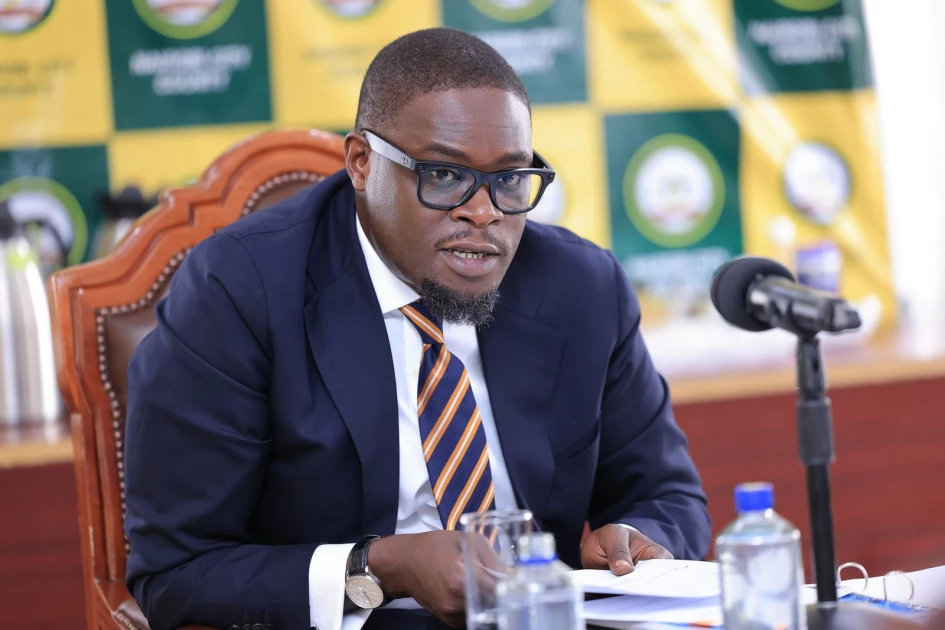The government has come out to clarify controversial remarks made by Transport Cabinet Secretary Kipchumba Murkomen, saying he did not issue a “shoot to kill” order during his recent public address in Kikuyu, Kiambu County.
Murkomen was captured on video urging police to act firmly in response to violent protests that saw police stations set ablaze across the country. “Na tumeambia polisi mtu yeyote atakaribia police station, piga yeye risasi,” Murkomen said, sparking immediate backlash from the public and civil society groups.
His remarks were made in front of residents gathered at the Deputy County Commissioner’s office, but the crowd reacted with jeers and disapproval. “Mtu mwenye anaenda kuiba bunduki, abembelezwe?” Murkomen posed, prompting the crowd to respond with shouts of “Shika yeye.” He added, “Bunduki sio mandazi!” — a statement that quickly went viral and drew widespread criticism.
The Law Society of Kenya (LSK) was among the first organizations to condemn the remarks, warning against what they described as dangerous rhetoric that could fuel extrajudicial killings.
In response to the uproar, Murkomen’s office released a statement clarifying that the CS did not issue a blanket order for police to shoot protesters. Instead, the ministry said, the remarks were meant to urge officers to be alert when their stations are under criminal attack.
“The CS did not instruct police to shoot peaceful demonstrators. He emphasized the legal right of police officers to use proportionate force when facing direct threats, particularly during violent attacks on police stations,” read part of the clarification.
According to the statement, the law allows police officers to use force under certain conditions, including protecting lives and preventing serious crimes. The statement cited the Sixth Schedule of the National Police Service Act (2011), which outlines the use of firearms, stating that officers must first attempt non-violent means, such as issuing warnings or negotiating, before resorting to force.
Under Kenyan law, an officer is permitted to use a firearm when their life or that of a citizen is in immediate danger, or when trying to stop serious crimes like armed robbery or violent escape from custody. The law also allows use of force to prevent someone from rescuing a dangerous suspect.
“These provisions are consistent with the National Police Service Act and Article 18 of the Penal Code, which acknowledge the right of officers to use necessary force in cases involving grave offences,” the statement noted.
The Ministry stressed that Murkomen’s comments were not a license for police brutality but a reminder of the legal framework guiding security agencies when confronting violent criminals.
“CS Murkomen’s comments were a reminder that while police must respect human rights, they also have a duty to protect citizens, themselves, and national property — especially during chaotic and lawless protests,” the ministry said.
The statement concluded by calling for calm and responsible dialogue, affirming that the government is committed to protecting the rights of peaceful demonstrators while cracking down on criminal elements who take advantage of protests to cause harm and destruction.












